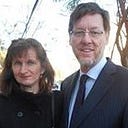Member-only story
The Fate of Civilizations
Is “doom and gloom” justified? What history tells us.
Part 1 of 3 (Parts 2 and 3 coming soon; stay tuned).
“Frannie,” he said, and turned her around so he could look into her eyes.
“What, Stuart?”
“Do you think… do you think people ever learn anything?”
She opened her mouth to speak, hesitated, fell silent. The kerosene lamp flickered.
Her eyes seemed very blue.
“I don’t know,” she said at last. She seemed unpleased with her answer; she struggled to say something more; to illuminate her first response; and could only say it again:
I don’t know.
— Stephen King, The Stand (uncut version, 1990)
Introduction.
We know the old saw: the one thing we learn from history is that no one ever learns from history. If true, this would be unfortunate, because history offers gold mines of learning opportunities for those willing to study it.
Doom and gloom is in the air. There’s plenty of it on Medium. I don’t know if the authors realize: we’ve been here before, in one way or another. There are major differences this go round, but notable similarities. Civilizations rise and have a “high noon” period. Something goes wrong. They lose their sense of direction. Then they grow decadent and self-destructive. At the end, they fall or are conquered. Will Western civilization go the same route — possibly taking much of the planet with us? What’s the solution? Is there one?
Most readers probably haven’t heard of Sir John Bagot Glubb (1897–1986). He began as a British soldier in the Middle East who rose in the ranks until he was able to create and, as a general, command the Arab Legion in Jordan from 1939 to 1956 (it was Transjordan until 1949). He had largely assimilated into Arab culture where he was known as Glubb Pasha.
Although highly respected and knighted for his service, Glubb’s fortunes dropped along with those of his native Great Britain in the 1950s. The British Empire was over, after all. This deeply affected him. With two books about Arab history and culture behind him, he turned to full-time historical research and…
